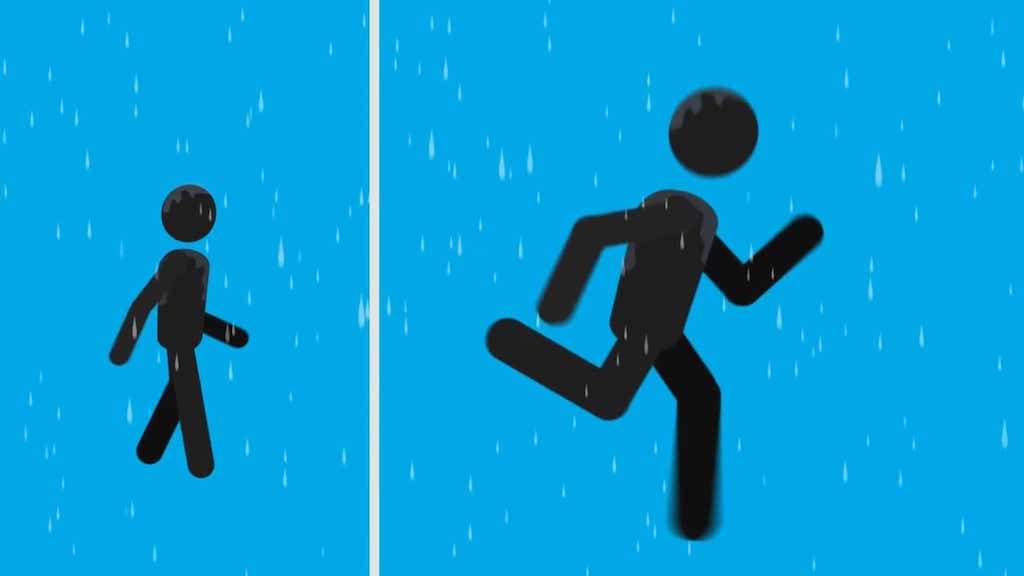Determining If It’s Better to Walk or Run in the Rain
Stu K of Debunked explores whether it is better to walk or run in the rain in order to be drier upon arrival at one’s destination. The answer is not as obvious as it seems.
For decades, people have speculated that running through the rain may, somewhat counterintuitively, result in you actually getting wetter than if you had just walked. This is based on the idea that, although you’ll spend less time in the rain if you reach your destination faster, moving forward quickly through the rain that is falling in front of you will mean you’ll hit more raindrops than if you’d just walked, resulting in a wetter you when you arrive at where you want to be.

Adding further complications to this age-old question are such factors as wind speed, direction of the raindrops, and body weight. Factors most of us won’t notice, much less consider, when caught in a downpour.
The question of whether or not to run or walk in the rain throws up a range of unexpected concerns and considerations, and indeed, much of the scientific discussion of the issue deals with very specific theoretical aspects of the problem that aren’t at all practical to consider in the real world. I don’t know about you, but having to factor wind speed and direction, as well as how fat you are, into your decision on whether to walk or run through the rain feels just a little like over-doing it.
That being said, it is more likely that one will stay drier if they run in the rain.
So, to answer the original question, it appears pretty clear that running in the rain will leave you drier upon arrival when compared to walking, but for many it may not be worth doing so.






